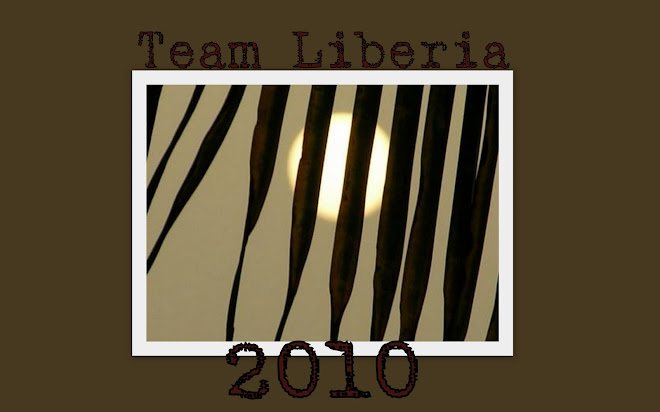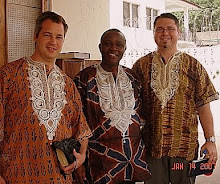CPI
Thursday, July 18, 2013
Saturday, July 13, 2013
Summer Reading Lists--BOOKS and more BOOKS!
Some of you have asked me to post my Summer reading list... Here we go!
"Show me a reader and I will show you a leader."
1. The God Who is There, Francis Schaeffer,
2. Amusing Ourselves to Death, by Neil Postman
3. Techopoly, by Neil Postman
4. The Soul of Cyberspace, by Doug Groothuis
5. The Technological Bluff, by Jacques Ellul
Enjoy your summer reading, and please don't give up on the book because of the difficult words.
CPI
"Show me a reader and I will show you a leader."
1. The God Who is There, Francis Schaeffer,
2. Amusing Ourselves to Death, by Neil Postman
3. Techopoly, by Neil Postman
4. The Soul of Cyberspace, by Doug Groothuis
5. The Technological Bluff, by Jacques Ellul
Enjoy your summer reading, and please don't give up on the book because of the difficult words.
CPI
Toward a Tolerant View of Tolerance
JULY 12, 2013 LEAVE A COMMENT
Many today hold that tolerance is, above all, the greatest and most important moral virtue. After all, to thrive in a socially, morally, religiously, and politically diverse society requires that tolerance be the summum bonum for any people group that calls itself civil.
But what exactly is meant by tolerance? Consider the following, taken from the opening presentation to my World Religions class (with assistance from Frank Beckwith’s Do the Right Thing: Readings in Applied Ethics and Social Philosophy).
Tolerance can only be exercised in the presence of disagreement; I can only be tolerant toward views I believe are mistaken. Never to disagree with anyone is not the mark of tolerance but intellectual suicide.
It hardly makes sense to tolerate things you heartily approve! Therefore, tolerance presupposes a negative outlook toward an opposing view.
If tolerance means I cannot judge a view as morally wrong, then that is no different from saying that I must be either indifferent to the opposing view or embrace it, in which case “tolerance” has lost its meaning.
Tolerance is not the same as acceptance. Tolerance does not mean accepting anything and rejecting nothing.
There is a clear distinction between accepting a person’s right to hold a belief and accepting the belief as true. Tolerating people and tolerating ideas are different.
Genuine respect for and acknowledgment of another’s dignity demands a willingness to listen and take seriously his or her most basic religious commitments, no matter how foreign or opposed they are to yours. Surely the people we respect and treat fairly are not just those with whom we agree!
Tolerance has its limitations. People may believe as they wish, but not behave as they wish.
Much of what hides behind “tolerance” today is intellectual cowardice and laziness. It’s easier to hurl an insult than to engage contrary opinions with thoughtful, relevant dialog that encourages understanding and engages alternative views.
And so, if we’re going to place such a high value on tolerance, let’s be careful about what we mean. And, what we do not mean. Only then can we tolerate tolerance.
(http://inchristus.wordpress.com/2013/07/12/toward-a-tolerant-view-of-tolerance/)
Friday, July 12, 2013
The Intolerance of Tolerance in a Culture of Relativism
Dear readers, I recommend that you read the whole book after reading the quote below. Thanks again for visiting the blog and reading the articles. We appreciate your commends and suggestions. CPI
Tolerance has come to mean that no one is right and no one is wrong and, indeed, the very act of stating that someone else’s views are immoral or incorrect is now taken to be intolerant (of course, from this same point of view, it is all right to be intolerant of those who hold to objectively true moral or religious positions). Once the existence of knowable truth in religion and ethics is denied, authority (the right to be believed and obeyed) gives way to power (the ability to force compliance), reason gives way to rhetoric, the speech writer is replaced by the makeup man, and spirited but civil debate in the culture wars is replaced by politically correct special-interest groups who have nothing left but political coercion to enforce their views on others. While the Christian faith clearly teaches that believers are to be involved as good citizens in the state, nevertheless, it is obvious why so many secularists are addicted to politics today because political power is a surrogate for a Higher Power. As Friedrich Nietzsche said, once God died in Western culture — that is, once the concept of God no longer informed the major idea-generating centers of society turned secular — there would be turmoil and horrible secular wars unchecked by traditional morality because the state would come to be a surrogate god for many.
(Moreland, J. P. Love Your God with All Your Mind: The Role of Reason in the Life of the Soul).
Tolerance has come to mean that no one is right and no one is wrong and, indeed, the very act of stating that someone else’s views are immoral or incorrect is now taken to be intolerant (of course, from this same point of view, it is all right to be intolerant of those who hold to objectively true moral or religious positions). Once the existence of knowable truth in religion and ethics is denied, authority (the right to be believed and obeyed) gives way to power (the ability to force compliance), reason gives way to rhetoric, the speech writer is replaced by the makeup man, and spirited but civil debate in the culture wars is replaced by politically correct special-interest groups who have nothing left but political coercion to enforce their views on others. While the Christian faith clearly teaches that believers are to be involved as good citizens in the state, nevertheless, it is obvious why so many secularists are addicted to politics today because political power is a surrogate for a Higher Power. As Friedrich Nietzsche said, once God died in Western culture — that is, once the concept of God no longer informed the major idea-generating centers of society turned secular — there would be turmoil and horrible secular wars unchecked by traditional morality because the state would come to be a surrogate god for many.
(Moreland, J. P. Love Your God with All Your Mind: The Role of Reason in the Life of the Soul).
Subscribe to:
Posts (Atom)




